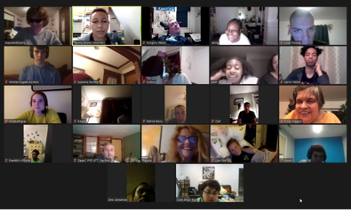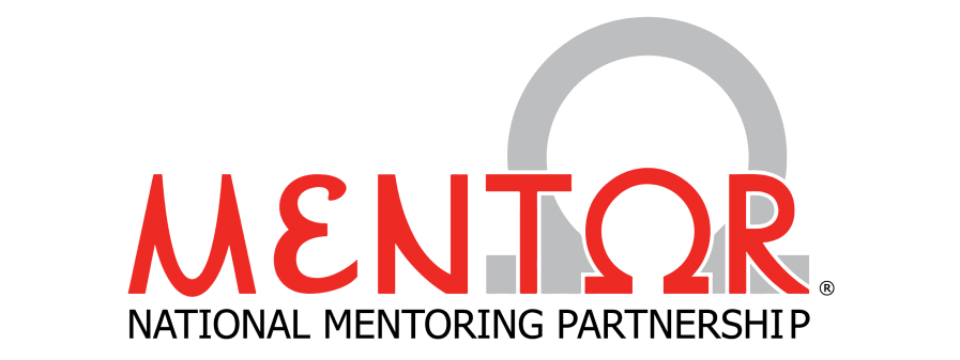Mentoring Innovations in Times of Crisis: Serving Youth with Disabilities
By Kristin Humphrey (Partners for Youth with Disabilities (PYD), Reprinted from the National Mentoring Resource Center
The coronavirus has created an unprecedented crisis which has impacted the way we live, work, and interact. Mentors are needed now more than ever to support youth during this time of COVID-19, providing comfort, connection, and suggestions to navigate this uncharted environment. For many young people with disabilities, COVID-19 posed an even greater risk due to the high-risk nature of many health conditions and disabilities.
We have long believed that practices which are inclusive and trauma informed benefit all youth. The benefits of these practices have become even more pronounced in the pandemic as the country experienced a collective trauma and increased need to adapt. Below we have highlighted the ways we’ve applied five trauma informed principles: voice and choice; a culture of self-care, promoting safety, access to resources and cultural humility, adapted from the Boston Public Health Commission’s Trauma Awareness and Resilience Training for Boston Area Youth Workers. These principles are interwoven and intersect with best practices for inclusion; as we have pivoted our programming during the pandemic, we have kept these practices in mind as a foundation.
1. Voice and Choice.
In order to foster voice and choice, staff have created a list of remote activity ideas for matches to choose from. Matches are also asked to submit their own suggestions that we can share with the community.
2. A Culture of Self-Care.
A culture of self-care recognizes the importance of staff caring for themselves to best support others and role modeling this for mentors. PYD has increased staff support through more regular emotional check-ins to start each meeting and mentoring specialists have increased match support. Virtual staff support events such as a lip sync competition, share your self-care, trivia nights, and thoughtful, personalized birthday gifts have all contributed to the supportive culture of PYD which trickles down to the energy given to youth and volunteers.

Pictured above, each staff shared a cat themed birthday note for an employee who likes cats and a birthday song for an employee who is a musician.
3. Promoting Safety.
Promoting safety involves creating environments that are both physically and emotionally safe; one factor that fosters emotional safety is structure. As our programs have become fully virtual, we have developed and refined best practices for hosting online events. Programs run more smoothly when staff members have dedicated roles which can include but are not limited to 1) a point person for tech support 2) a facilitator and 3) a moderator to read the chat. Specific jobs such as having a moderator to watch the chat and supervise behavior, having someone to act as the liaison between chat and facilitators (to keep order and focus on the presenter) helps the program run more effectively. Reviewing ground rules, similar to what is often shared at in person events, helps set the tone for the group and creates a safe space. It is helpful to have an agenda for participants including time for transition and breaks. We have built breaks into sessions that are 2 or more hours and communicated the breaks at the beginning so that participants are aware and ready for transitions. Below is a visual schedule that was created for our virtual mentor appreciation night, which is helpful for those who process information visually.
4. Access to Resources.
Access to Resources, is another trauma informed principle which has become even more critical during the pandemic. In addition to the activity ideas in the monthly newsletter, each month we circulate a COVID-19 resource guide. Related to this principle, it’s important to “know what you don’t know” as an organization and intentionally build relationships with other community service providers to create wrap around support for youth. Examples include school systems, disability commissions, as well as other mentoring and disability serving nonprofits in the community. Within the past year, we partnered with companies such as Microsoft, foundations such as Liberty Mutual and board members to gain access to laptops that could be distributed to youth in need to ensure our participants could fully engage with virtual programming.
- Cultural Humility.
Cultural humility, another trauma informed principle, involves understanding one’s personal experience and intersecting identities as well as how one’s unique identity informs interactions with youth. Related to access to resources and cultural humility, PYD has formed partnerships with organizations that specialize in other identity groups to expand staff training. Staff received training from youth led facilitators at Boston Alliance of Gay, Lesbian, Bisexual and Transgendered Youth (BAGLY) and will be doing 3 months of training through YW Boston’s training on understanding racial equity. Throughout the past year, staff have also created and updated an anti-racism resource guide which is distributed to matches on a monthly basis.
PYD is the home of the National Disability Mentoring Coalition (NDMC). These partnerships for training and collaborative efforts to identify outstanding mentors who represent multiply marginalized groups has strengthened our vision of working towards a more inclusive world. We also know that we will continue to learn as the world continues to navigate COVID-19. We expect that this process will make us more adaptable, innovative, and creative and ultimately better able to serve our community for the long-term.
PYD, has been a leader in the field of mentoring for youth with disabilities for over three decades. Our innovative programs serve youth ages six to twenty-four with a broad range of disabilities, throughout Massachusetts. PYD’s goal is to create a world where young people with disabilities will be able to live with dignity and pride in who they are, and to lead self-determined lives filled with purpose. To make this happen, we build the skills and abilities of young people with disabilities, and increase the inclusivity of workplaces, organizations, and communities. For more information on PYD training, please visit learn.
To access this article, click here.













